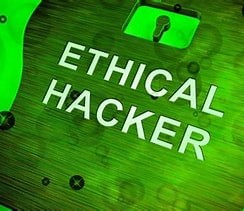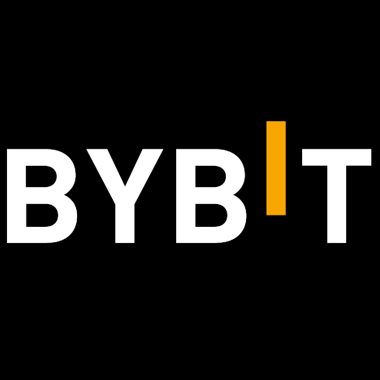
Ethical Hacking Roadmap: From Beginner to Expert – A Guide by Kian Technologies, Bhilai
08 Jul 2025
Introduction
The world of ethical hacking offers a rewarding career where you can help organizations secure their digital assets by identifying vulnerabilities before malicious hackers exploit them. With the growing threat of cybercrime, ethical hackers are in high demand. At Kian Technologies, Bhilai, we offer a structured pathway that helps you progress from a beginner to an advanced ethical hacker. This roadmap will guide you through the stages, certifications, and skills you need to master ethical hacking.
Stage 1: Beginner – Laying the Foundation
1. Understand IT and Networking Basics
Before diving into ethical hacking, you need a strong foundation in information technology and networking. This includes:
Networking Concepts: Learn about IP addressing, TCP/IP, DNS, routing, and switching.
Operating Systems: Understand Windows, Linux, and Mac OS. Linux is especially important because many hacking tools are built for Linux.
Basic Security Concepts: Learn about firewalls, encryption, malware, and the types of cyberattacks (DDoS, MITM, SQL Injection, etc.).
2. Learn the Fundamentals of Cybersecurity
Ethical hacking relies heavily on understanding how systems can be attacked and defended. At this stage, focus on:
Security Layers: Learn about the different layers of security (Network, Host, Application, etc.).
Cyber Attack Types: Understand common types of cyberattacks such as phishing, malware, and cross-site scripting.
Basic Security Tools: Familiarize yourself with basic security tools like Wireshark, Nmap, and Metasploit.
3. Basic Certifications for Beginners
Start with beginner-level cybersecurity certifications to gain a foundational understanding.
CompTIA Security+: A basic certification that covers network security, compliance, threats, and attacks.
Certified Ethical Hacker (CEH) – Foundation Level: A starting point to understand ethical hacking, including common hacking techniques and countermeasures.
4. Beginner Roles in Ethical Hacking
At this stage, you can apply for entry-level cybersecurity positions such as:
Security Operations Center (SOC) Analyst
IT Support Technician
Network Security Administrator
Courses at Kian Technologies:
Introduction to Ethical Hacking
Networking Fundamentals and Security
Linux for Ethical Hackers
Stage 2: Intermediate – Diving Deeper into Ethical Hacking
1. Master Penetration Testing
Penetration testing is at the core of ethical hacking. During this stage, you will focus on understanding and conducting various penetration tests on networks, systems, and applications.
Penetration Testing Tools: Master tools such as Metasploit, Burp Suite, Kali Linux, and Nessus.
Types of Penetration Tests: Learn how to conduct external, internal, and web application penetration tests.
Vulnerability Analysis: Learn how to identify and fix vulnerabilities using tools and manual techniques.
2. Learn Exploit Development and Reverse Engineering
At this stage, ethical hackers also need to understand how exploits are developed and how malware works. Key skills include:
Buffer Overflow Exploits: Learn how to create and defend against buffer overflow attacks.
Reverse Engineering: Learn how to reverse-engineer binaries to understand how malware works.
Exploit Development: Understand how vulnerabilities are identified and exploited.
3. Intermediate-Level Certifications
Get certified to prove your ethical hacking skills. The following certifications are ideal for intermediate learners:
Certified Ethical Hacker (CEH): The full CEH certification that focuses on penetration testing, vulnerability scanning, and exploit development.
Certified Information Systems Security Professional (CISSP): If you want to broaden your knowledge of security practices and management.
4. Intermediate Ethical Hacking Roles
After gaining more knowledge, you can move on to mid-level ethical hacking roles:
Penetration Tester
Vulnerability Assessment Analyst
Security Consultant
Courses at Kian Technologies:
Advanced Ethical Hacking
Penetration Testing and Vulnerability Assessment
Reverse Engineering and Malware Analysis
Stage 3: Advanced – Becoming an Expert Ethical Hacker
1. Specialize in Advanced Hacking Techniques
As you reach the advanced stage, focus on specialized areas of ethical hacking to become an expert in the field. These include:
Web Application Security: Learn how to secure web applications and understand advanced vulnerabilities like Cross-Site Scripting (XSS), SQL Injection, and Cross-Site Request Forgery (CSRF).
Advanced Malware Analysis: Learn about rootkits, advanced persistent threats (APT), and how to dissect complex malware.
Cloud Security and IoT: With the rise of cloud computing and Internet of Things (IoT), learn how to hack and secure these systems.
2. Master Incident Response and Forensics
A critical aspect of ethical hacking is the ability to respond to incidents and investigate cybercrimes. Learn how to:
Incident Response: Master the process of responding to security breaches, investigating them, and recovering data.
Digital Forensics: Understand how to collect, preserve, and analyze evidence from compromised systems.
3. Advanced Certifications
At this level, you'll need to pursue advanced-level certifications that validate your expertise in ethical hacking and advanced topics.
Offensive Security Certified Professional (OSCP): A highly respected penetration testing certification that includes a hands-on exam.
Certified Hacking Forensic Investigator (CHFI): Specializes in digital forensics and responding to cybercrimes.
Certified Expert Ethical Hacker (CEH Expert): The expert-level CEH certification, focusing on real-world attack simulations and advanced techniques.
4. Expert Ethical Hacking Roles
With advanced skills and certifications, you can apply for high-level positions, such as:
Senior Penetration Tester
Ethical Hacking Consultant
Cybersecurity Architect
Chief Information Security Officer (CISO)
Courses at Kian Technologies:
Advanced Penetration Testing and Exploitation
Cloud Security and Ethical Hacking
Incident Response and Forensic Investigation
Stage 4: Continuous Learning and Contribution to the Community
1. Stay Updated with Industry Trends
Cybersecurity and hacking techniques evolve rapidly. Therefore, continuous learning is critical:
Follow Cybersecurity Blogs and Forums: Stay updated with blogs, forums, and newsletters from leading cybersecurity professionals and organizations.
Attend Conferences and Webinars: Participate in events like DEF CON, Black Hat, and other cybersecurity conferences to network and learn about emerging threats.
2. Contribute to Open Source Projects
Contributing to open-source security projects or participating in capture the flag (CTF) challenges is an excellent way to sharpen your skills and gain recognition.
3. Become a Mentor or Trainer
Once you reach an expert level, consider mentoring younger professionals, teaching ethical hacking courses, or writing blogs. Sharing knowledge helps you stay sharp while giving back to the community.
Conclusion
The journey from a beginner to expert ethical hacker requires continuous learning, practice, and determination. At Kian Technologies, Bhilai, we offer all the tools, resources, and certifications you need to progress in your ethical hacking career. Whether you’re starting fresh or advancing your skills, we guide you every step of the way.
The world of ethical hacking offers a rewarding career where you can help organizations secure their digital assets by identifying vulnerabilities before malicious hackers exploit them. With the growing threat of cybercrime, ethical hackers are in high demand. At Kian Technologies, Bhilai, we offer a structured pathway that helps you progress from a beginner to an advanced ethical hacker. This roadmap will guide you through the stages, certifications, and skills you need to master ethical hacking.
Stage 1: Beginner – Laying the Foundation
1. Understand IT and Networking Basics
Before diving into ethical hacking, you need a strong foundation in information technology and networking. This includes:
Networking Concepts: Learn about IP addressing, TCP/IP, DNS, routing, and switching.
Operating Systems: Understand Windows, Linux, and Mac OS. Linux is especially important because many hacking tools are built for Linux.
Basic Security Concepts: Learn about firewalls, encryption, malware, and the types of cyberattacks (DDoS, MITM, SQL Injection, etc.).
2. Learn the Fundamentals of Cybersecurity
Ethical hacking relies heavily on understanding how systems can be attacked and defended. At this stage, focus on:
Security Layers: Learn about the different layers of security (Network, Host, Application, etc.).
Cyber Attack Types: Understand common types of cyberattacks such as phishing, malware, and cross-site scripting.
Basic Security Tools: Familiarize yourself with basic security tools like Wireshark, Nmap, and Metasploit.
3. Basic Certifications for Beginners
Start with beginner-level cybersecurity certifications to gain a foundational understanding.
CompTIA Security+: A basic certification that covers network security, compliance, threats, and attacks.
Certified Ethical Hacker (CEH) – Foundation Level: A starting point to understand ethical hacking, including common hacking techniques and countermeasures.
4. Beginner Roles in Ethical Hacking
At this stage, you can apply for entry-level cybersecurity positions such as:
Security Operations Center (SOC) Analyst
IT Support Technician
Network Security Administrator
Courses at Kian Technologies:
Introduction to Ethical Hacking
Networking Fundamentals and Security
Linux for Ethical Hackers
Stage 2: Intermediate – Diving Deeper into Ethical Hacking
1. Master Penetration Testing
Penetration testing is at the core of ethical hacking. During this stage, you will focus on understanding and conducting various penetration tests on networks, systems, and applications.
Penetration Testing Tools: Master tools such as Metasploit, Burp Suite, Kali Linux, and Nessus.
Types of Penetration Tests: Learn how to conduct external, internal, and web application penetration tests.
Vulnerability Analysis: Learn how to identify and fix vulnerabilities using tools and manual techniques.
2. Learn Exploit Development and Reverse Engineering
At this stage, ethical hackers also need to understand how exploits are developed and how malware works. Key skills include:
Buffer Overflow Exploits: Learn how to create and defend against buffer overflow attacks.
Reverse Engineering: Learn how to reverse-engineer binaries to understand how malware works.
Exploit Development: Understand how vulnerabilities are identified and exploited.
3. Intermediate-Level Certifications
Get certified to prove your ethical hacking skills. The following certifications are ideal for intermediate learners:
Certified Ethical Hacker (CEH): The full CEH certification that focuses on penetration testing, vulnerability scanning, and exploit development.
Certified Information Systems Security Professional (CISSP): If you want to broaden your knowledge of security practices and management.
4. Intermediate Ethical Hacking Roles
After gaining more knowledge, you can move on to mid-level ethical hacking roles:
Penetration Tester
Vulnerability Assessment Analyst
Security Consultant
Courses at Kian Technologies:
Advanced Ethical Hacking
Penetration Testing and Vulnerability Assessment
Reverse Engineering and Malware Analysis
Stage 3: Advanced – Becoming an Expert Ethical Hacker
1. Specialize in Advanced Hacking Techniques
As you reach the advanced stage, focus on specialized areas of ethical hacking to become an expert in the field. These include:
Web Application Security: Learn how to secure web applications and understand advanced vulnerabilities like Cross-Site Scripting (XSS), SQL Injection, and Cross-Site Request Forgery (CSRF).
Advanced Malware Analysis: Learn about rootkits, advanced persistent threats (APT), and how to dissect complex malware.
Cloud Security and IoT: With the rise of cloud computing and Internet of Things (IoT), learn how to hack and secure these systems.
2. Master Incident Response and Forensics
A critical aspect of ethical hacking is the ability to respond to incidents and investigate cybercrimes. Learn how to:
Incident Response: Master the process of responding to security breaches, investigating them, and recovering data.
Digital Forensics: Understand how to collect, preserve, and analyze evidence from compromised systems.
3. Advanced Certifications
At this level, you'll need to pursue advanced-level certifications that validate your expertise in ethical hacking and advanced topics.
Offensive Security Certified Professional (OSCP): A highly respected penetration testing certification that includes a hands-on exam.
Certified Hacking Forensic Investigator (CHFI): Specializes in digital forensics and responding to cybercrimes.
Certified Expert Ethical Hacker (CEH Expert): The expert-level CEH certification, focusing on real-world attack simulations and advanced techniques.
4. Expert Ethical Hacking Roles
With advanced skills and certifications, you can apply for high-level positions, such as:
Senior Penetration Tester
Ethical Hacking Consultant
Cybersecurity Architect
Chief Information Security Officer (CISO)
Courses at Kian Technologies:
Advanced Penetration Testing and Exploitation
Cloud Security and Ethical Hacking
Incident Response and Forensic Investigation
Stage 4: Continuous Learning and Contribution to the Community
1. Stay Updated with Industry Trends
Cybersecurity and hacking techniques evolve rapidly. Therefore, continuous learning is critical:
Follow Cybersecurity Blogs and Forums: Stay updated with blogs, forums, and newsletters from leading cybersecurity professionals and organizations.
Attend Conferences and Webinars: Participate in events like DEF CON, Black Hat, and other cybersecurity conferences to network and learn about emerging threats.
2. Contribute to Open Source Projects
Contributing to open-source security projects or participating in capture the flag (CTF) challenges is an excellent way to sharpen your skills and gain recognition.
3. Become a Mentor or Trainer
Once you reach an expert level, consider mentoring younger professionals, teaching ethical hacking courses, or writing blogs. Sharing knowledge helps you stay sharp while giving back to the community.
Conclusion
The journey from a beginner to expert ethical hacker requires continuous learning, practice, and determination. At Kian Technologies, Bhilai, we offer all the tools, resources, and certifications you need to progress in your ethical hacking career. Whether you’re starting fresh or advancing your skills, we guide you every step of the way.



